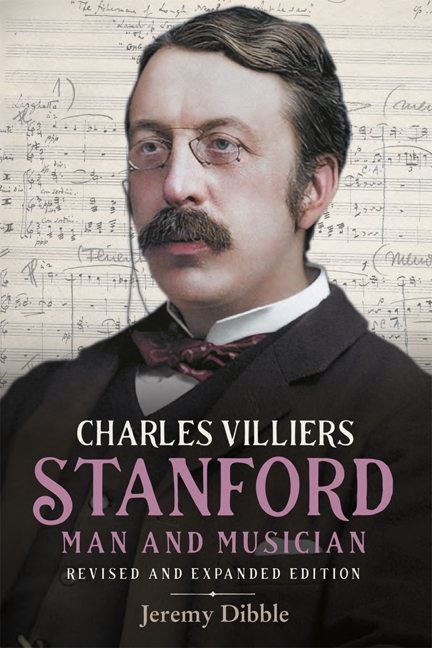Book contents
- Frontmatter
- Dedication
- Contents
- List of Illustrations
- List of Music Examples
- List of Analytical Tables
- Preface and Acknowledgements
- Supplementary Introduction to the Revised and Expanded Edition
- List of Sigla and Abbreviations
- I Early Influences and Impressions, 1852–70
- II Formative Years, 1870–87
- III Recognition, 1888–1901
- IV The New Generation, 1901–14
- V War and Decline, 1914–24
- Appendix: List of Works
- Select Bibliography
- Index of Works
- General Index
- Irish Musical Studies Previous volumes
3 - Cambridge and the Wanderjahre (Leipzig and Berlin, 1870–6)
Published online by Cambridge University Press: 12 May 2024
- Frontmatter
- Dedication
- Contents
- List of Illustrations
- List of Music Examples
- List of Analytical Tables
- Preface and Acknowledgements
- Supplementary Introduction to the Revised and Expanded Edition
- List of Sigla and Abbreviations
- I Early Influences and Impressions, 1852–70
- II Formative Years, 1870–87
- III Recognition, 1888–1901
- IV The New Generation, 1901–14
- V War and Decline, 1914–24
- Appendix: List of Works
- Select Bibliography
- Index of Works
- General Index
- Irish Musical Studies Previous volumes
Summary
Stanford matriculated at Queens’ in October 1870. From the beginning he felt at home since many of his old Dublin friends were students at the same university. As one of Cambridge's first organ scholars he applied himself with customary vigour to his duties in chapel (a building which now houses the Library). Special services and performances of sacred music soon began to attract attention across the university. The young Irishman was not only a fine organist but a notable choir-trainer. The Cambridge University Musical Society (CUMS) was also quickly aware of his presence. Stanford was elected a member of the society at a meeting of 25 October with his debut as a pianist occurring shortly afterwards on 30 November. This performance, warmly applauded by the audience, was to signal his rapid rise to prominence within the hierarchy of Cambridge music.
During his first term at the University there was little opportunity for composition, but he did find time to complete a setting of Thomas Campbell's ‘To the evening star’ (dated 18 December 1870) whose harmonic world seems haunted by Schumann's Frauenliebe und Leben. He also finished a Pater Noster for Stewart and the Dublin University Choral Society which was performed on 19 December. The Christmas vacation was spent largely socialising among old friends. He joined a populous gathering at Adare Manor, Lord Dunraven's country seat in Co. Limerick and later visited the Graves family at Parknasilla where he took part as pianist and composer in a satirical sketch on Darwinism concocted by Alfred, Charles and Arnold.
Back at Cambridge in early 1871, Stanford continued to make his mark as the most promising musician the university had seen in decades. The CUMS programmes for the year show that he was already dominating events. In March he appeared as pianist in Beethoven's Piano Trio Op. 3 No. 1 and in June he was the soloist in a concerto by Weber. In fact Stanford's speedy rise to fame occurred at an opportune moment in the history of the society. It so happened that the health of the society's conductor, John Larkin Hopkins, had begun to fail. In February 1870 he had tendered his resignation to CUMS with the promise that George Garrett, the organist of St John’s, would take over his responsibilities. Hopkins’ resignation was rejected by the CUMS committee, but it still left the society with an uncertain future.
- Type
- Chapter
- Information
- Charles Villiers StanfordMan and Musician, pp. 49 - 96Publisher: Boydell & BrewerPrint publication year: 2024

